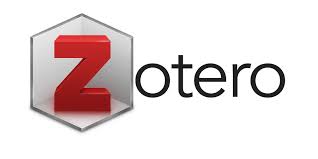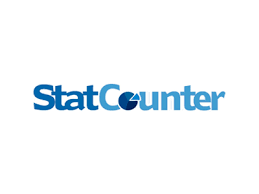Perbedaan Peningkatan Kemampuan Koneksi Matematis Siswa SMP melalui Pembelajaran Berbantuan Puzzle dan Geogebra Ditinjau Berdasarkan Gender
DOI:
https://doi.org/10.29240/ja.v2i1.1503Keywords:
GeoGebra, Koneksi Matematika, PuzzleAbstract
Based on TIMSS 2011 and PISA 2018, mathematical connection ability of Indonesian students has not been optimal. Some of questions in TIMSS and PISA measured the mathematical connections ability. Needed the instructional media to increase mathematical connection ability, such as puzzle and GeoGebra. In addition, gender also affects students' mathematical ability. This study aims to investigate differences in mathematical connection abilities between students who learning by puzzle and GeoGebra, investigate differences in mathematical connection abilities between male and female students, and investigate interactions between instructional media and gender. This research was a quasi-experiment which used nonequivalent control group design. The samples were students of class VIII-A and VIII-B in Junior High School of 1 Tangerang City. The instruments in this research consisted of test items, such as pretest and posttest. Hypotheses test through parametric test (ANOVA Two Tail). Based on ANOVA Two Tail-test result, showed that there is difference increase in mathematical connection ability students who learning by GeoGebra and puzzle. Then, there is no difference increase mathematical connections ability between male and female students. The factors of instructional media and gender do not equally affect the increase of mathematical connection ability.
Downloads
References
Ali, M., & Asrori, M. (2014). Metodologi dan Aplikasi Riset Pendidikan. Bumi Aksara
Amir MZ, Z. (2013). Perspektif Gender dalam Pembelajaran Matematika. Marwah, XII(1)
Anthaqo, I. N., & Muhsetyo, G. (2013). Penggunaan Media Puzzle Magnet untuk Meningkatkan Hasil Belajar Siswa SMPN 1 Trawas tentang Kubus & Balok melalui Model Problem Based Instruction (PBI). http://jurnal-online.um.ac.id/article/do/detail-article/1/31/915
Arsyad, A. (2014). Media pembelajaran. Media Pembelajaran
Bao, L. (2006). Theoretical comparisons of average normalized gain calculations. American Journal of Physics. https://doi.org/10.1119/1.2213632
Creswell, J. W. (2015). Riset Pendidikan: Perencanaan, Pelaksanaan, dan Evaluasi Riset Kualitatif dan Kuantitatif. In Yogyakarta: Pustaka Pelajar. https://doi.org/10.1017/CBO9781107415324.004
Dewi, A. K., & Kurniasih, N. (2016). Peningkatan Penalaran dan Komunikasi Matematis Siswa dengan CMP Kelas VIIG SMP Negeri 3 Gombong. Ekuivalen, 20(1), 37–42. http://ejournal.umpwr.ac.id/index.php/ekuivalen/article/view/2869
Furner, J. M., & Marinas, C. A. (2013). Connecting Geometry, Measurement, and Algebra Using Geogebra for The Elementary Grades. http://archives.math.utk.edu/ICTCM/VOL24/ S112/paper.pdf
Hake, R. R. (1999). Analyzing Change/Gain Scores. http://www.physics.indiana.edu/~sdi/AnalyzingChange-Gain.pdf
Heinich, R., Molenda, M., Russell, J., & Smaldino, S. (2002). The ASSURE Model. In Instructional Media and Technologies for Learning
Herman, T. (2007). Pembelajaran Berbasis Masalah untuk Meningkatkan Kemampuan Berpikir Matematis Tingkat Tinggi Siswa Sekolah Menengah Pertama. Educationist
Hohenwarter, M., & Fuchs, K. (2005). Combination of dynamic geometry , algebra and calculus in the software system GeoGebra. Computer Algebra Systems and Dynamic Geometry Systems in Mathematics Teaching Conference 2004
Hohenwarter, M., Hohenwarter, J., Kreis, Y., & Lavicza, Z. (2008). Teaching and Learning Calculus with Free Dynamic Mathematics Software GeoGebra. Research and Development in the Teaching Ang Learning of Calculus, TSG 16 (September 2016), 1–9
Ina V.S. Mullis, Michael O. Martin, Pierre Foy, and A. A. (2012). Timss 2011 International Results in Mathematics. In TIMSS & PIRLS International Study Center
Jayanti, F. (2015). Eksperimen Pembelajaran Matematika Menggunakan Strategi Ekspository dan Inquiry Terhadap Hasil Belajar Ditinjau dari Gender Siswa Kelas VII Semester Genap Di SMP Negeri 2 Colomadu Tahun 2015/2016
Kementerian Pendidikan Nasional RI. (2006). PERMENDIKNAS NO 22 TAHUN 2006. Global Shadows: Africa in the Neoliberal World Order
Maryanti, M., & Qadriah, L. (2018). Pengaruh Pembelajaran Contextual Teaching and Learning (CTL) terhadap Kemampuan Koneksi Matematis Siswa SMA Berbasis Gender. Jurnal Peluang, 6(2), 39–46
NCTM. (2000). Principles and Standards for School Mathematics. In School Science and Mathematics
Nurafni. (2014). Perbedaan Hasil Belajar Matematika Siswa Dengan Menggunakan Media Alat Peraga Sederhana dan Powerpoint. Seminar Nasional Pendidikan Matematika, 171–179
OECD. (2019). PISA 2018 Results. In OECD Publishing
Permadi, F. D., & Rudhito, M. A. (2012). Efektifitas Pembelajaran dengan Program Geogebra Dibanding Pembelajaran Konvensional Pada Materi Teorema Pythagoras Kelas VIII SMP Pangudi Luhur Gantiwarno Klaten. Seminar Nasional Matematika dan Pendidikan Matematika. http://eprints.uny.ac.id/7569/1/P - 35.pdf
Rosita Primasari, Zulfiani, & Y. H. (2014). Penggunaan Media Pembelajaran di Madrasah Aliah Negeri Se-Jakarta Selatan.
Rumiati, & Wardani, S. (2011). Instrumen Penilaian Hasil Belajar Matematika SMP: Belajar dari PISA dan TIMSS. In Yogyakarta: PPPPTK Matematika
Ruseffendi, E. T. (2010). Dasar-Dasar Penelitian Pendidikan dan Bidang Non-Eksakta Lainnya. Tarsito
Santrock, J. W. (2014). Psikologi Pendidikan: Educational Psychology (H. Bhimasena (Ed.); 5th ed.). Salemba Humanika
Shadiq, F. (2014). Pembelajaran Matematika: Cara Meningkatkan Kemampuan Berpikir Siswa. Graha Ilmu
Shadish, W., Cook, T., & Campbell, D. (2002). Quasi-experimental designs that use both control groups and pretests. In Experimental and Quasi-Experimental Designs
Stickels, T. (2009). Math Puzzles and Brainteasers Grades 6-8. Jossey-Bass
Sundayana, R. (2013). Media Pembelajaran Matematika. In Bandung: Alfabeta. https://doi.org/10.1016/j.sbspro.2016.02.061
Sundayana, R. (2015). Statistika Penelitian Pendidikan. Alfabeta
Downloads
Published
Issue
Section
Citation Check
License
Authors who publish with ARITHMETIC: Academic Journal of Math agree to the following terms:
- Authors retain copyright and grant the journal right of first publication with the work simultaneously licensed under a Creative Commons Attribution-NonCommercial-ShareAlike 4.0 International License (CC BY-NC-SA 4.0) that allows others to share the work with an acknowledgment of the work's authorship and initial publication in this journal.
- Authors are able to enter into separate, additional contractual arrangements for the non-exclusive distribution of the journal's published version of the work (e.g., post it to an institutional repository or publish it in a book), with an acknowledgment of its initial publication in this journal.
- Authors are permitted and encouraged to post their work online (e.g., in institutional repositories or on their website) prior to and during the submission process, as it can lead to productive exchanges, as well as earlier and greater citation of published work (See The Effect of Open Access).







